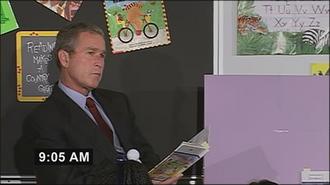There is a rich irony in the current plight of Jiang Yanyong, the whisteleblower universally hailed for alerting Time magazine last year to the truth about SARS in Beijing and the government’s frantic efforts to cover it up.
The irony is that so many people with whom I’ve discussed Chinese political trends pointed in 2003 to the government’s good treatment of Jiang (he wasn’t punished — at least not immediately) as proof positive that Hu Jintao is a reform-minded leader under whose rule freedom of political expression and political reform would flourish.
I can’t say whether Hu is a reform-minded leader or not; I’ve seen hints of that, but in nearly every case they’ve ultimately led to disappointment. But I can say that under him, political reform and freedom of political expression have done anything but flourish. And now, Jiang Yanyong, the pre-eminent symbol of the new-found Chinese Glasnost, is himself locked up by the Thought Police with Hu’s approval!
The government’s response to SARS in April 2003 — acknowledging its sins, firing some bigwigs and getting serious about fighting the epidemic — were seen by many as true turning points. It was a sign that the CCP had seen the light, and would not go back to silencing and punishing whistleblowers, or manipulating the truth to protect itself at the people’s expense. It was as though China had passed through a grave danger (true enough), from which its leaders emerged more noble and more enlightened than ever before.
I wanted to agree with this rather optimistic outlook, but was forced to be more cynical, as a leopard’s spots don’t change overnight, at least not this dramatically. The ongoing stream of stories on rampant corruption and repression of political expression did little to reassure me.
So, returning to the present and Dr. Jiang. Here’s a superb update from Philip Pan (who seems to have replaced John Pomfret as the Washington Post’s foreign corresondent in Beijing).
Chinese military and security officials are forcing the elderly physician who exposed the government’s coverup of the SARS epidemic to attend intense indoctrination classes and are interrogating him about a letter he wrote in February denouncing the 1989 Tiananmen Square massacre, according to sources familiar with the situation.
The officials have detained Jiang Yanyong, 72, a semi-retired surgeon in the People’s Liberation Army, in a room under 24-hour supervision, and they have threatened to keep him until he “changes his thinking” and “raises his level of understanding” about the Tiananmen crackdown, said one of the sources, who described the classes as “brainwashing sessions.”
But Jiang, who became a national hero last year after blowing the whistle on the government’s efforts to hide the SARS outbreak, has refused to back down, and said in a recent note to his family that he would continue to “face the problems confronting me with the principle of seeking truth from facts,” according to a person close to the family.
The standoff is the culmination of an extraordinary battle of wills that has been quietly unfolding for months between China’s ruling Communist Party and an individual who has already challenged the authorities and forced them to back down once.
China’s state-controlled media have not reported Jiang’s detention, which began June 1. In response to questions submitted by The Washington Post, the government said in a brief statement: “Jiang Yanyong, as a soldier, recently violated the relevant discipline of the military. Based on relevant regulations, the military has been helping and educating him.”
Though Chinese police routinely jail dissidents, the decision to detain Jiang appears to have been made by the Central Military Commission, the nation’s supreme military body, with the consent of the party’s most senior leaders, including President Hu Jintao and his influential predecessor, Jiang Zemin, according to a source familiar with the decision-making process. [Emphasis added.]
The move represents a high-risk gamble by the leadership because of Jiang Yanyong’s public stature at home and abroad. Photographs of his wizened face have been displayed on the covers of national magazines, and state newspapers have published articles crediting him with saving lives around the world by forcing government officials to confront the SARS epidemic.
If the leadership succeeds in silencing Jiang, it would send a powerful message to potential critics about its determination to crush dissent. But Jiang’s detention could also trigger a backlash against a party already struggling to maintain its monopoly on power as there is rising social discontent. And if Jiang is not released, he would almost certainly become China’s most famous political prisoner.
This is one more in a series of recent steps backwards, but it surely has the ingredients for an international scandal. Even inside China, as the article goes on to say, there is huge support for Dr. Jiang, and his arrest could threaten internal stability more than reinforce it.
No one knows yet who’s pulling the strings. Considering the doctor’s outspokenness on the Tiananmen Square Massacre and the role of the Central Military Commission, the smart money is on Jiang Zemin, though Hu evidently gave his buy-in. Maybe it’s yet another manifestation of the famous in-fighting between them. But I don’t know.
Pan has done an awesome job with this sweeping article. Read the whole piece to grasp just how tragic this story is. Read about the victim being separated from his wife, and his bravery throughout the ordeal. Read about the Stalinesque determination to force the doctor to think the way The State thinks. Read about China’s taking a brave and revered old man, a national hero, and how they are seeking to crush him with the most loathsome totalitarian tools, your good old-fashioned “brainwashing.” Read about the New China and its bold new reform-minded leadership.
Update: To understand just how splendid a man Jiang Yanyong is, you may want to read his recent letter to the Chinese government. It is heartbreaking, to say the least. Read it and see what real heroism is.

Comments